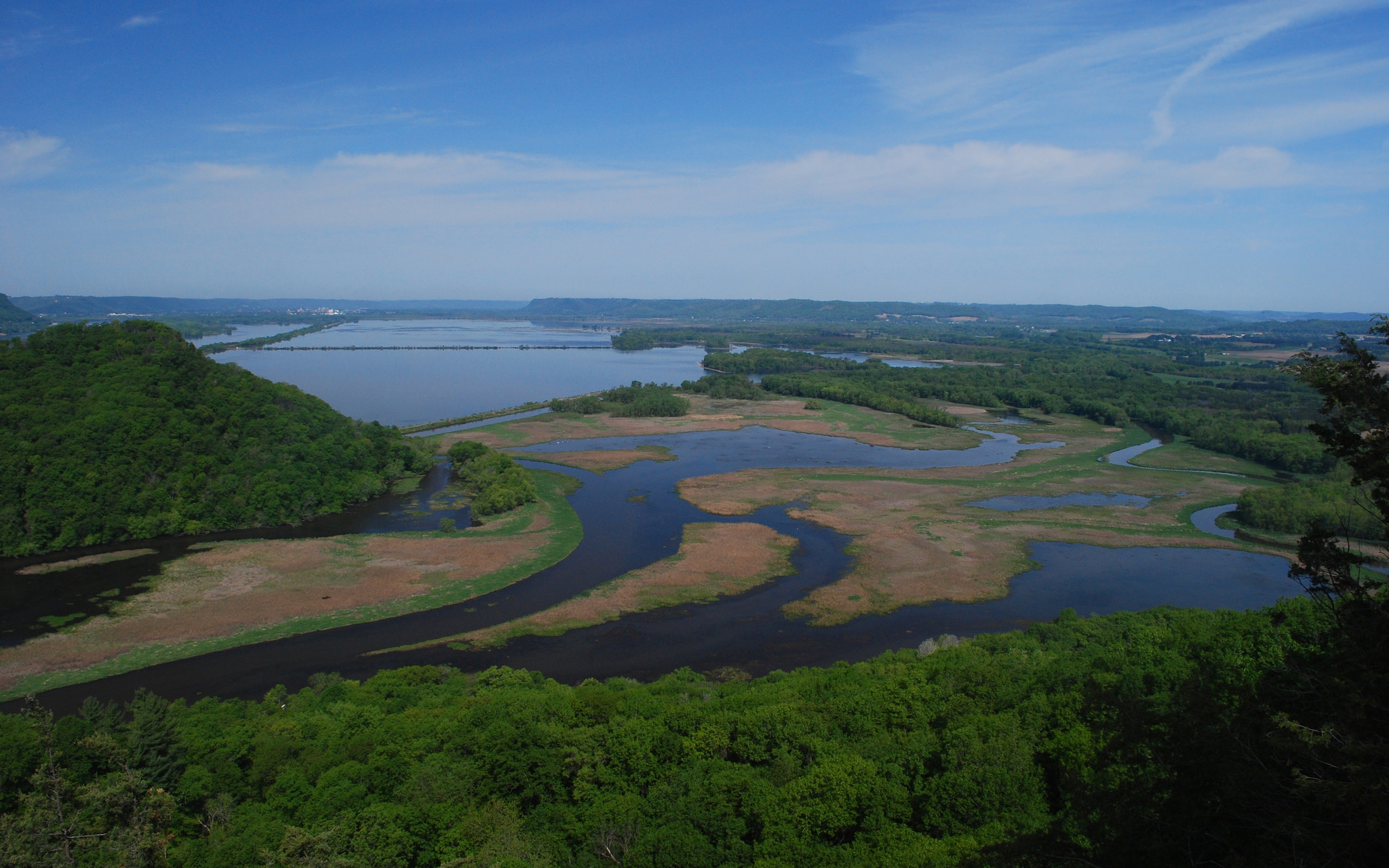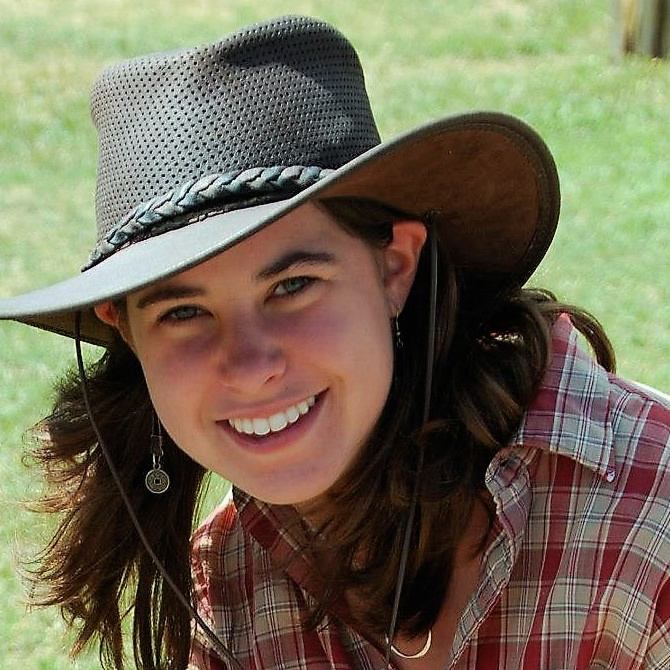The Wisdom Of Water Foot Island
Meg O'Connor
Listen to The Wisdom of Water Foot Island:
When I was seven, my mom answered the telephone and got a funny look on her face. Grammy wasn’t going to get better. I started to cry. “What do we do?” I asked her. Nothing, she said. “There must be something,” I insisted. She stared at me with tears in her eyes, like she had a secret that she couldn’t tell me. We could pray, Mom said. I wrinkled my face. We had never prayed before. She got down on her knees on the faded blue rug, and I copied her. She put her hands together. I put my hands together. “What do we do?” I asked. We tell God what we want, Mom said. So we did. We told God that we’d prefer it if he’d make Grammy better instead of taking her to Heaven. Then we said Amen. “If it’s that easy,” I said, “shouldn’t we have done it already?” Mom started crying.
Grammy died on Easter. When my mom drove back from the hospital to tell me, I was dressed in bunny ears, and I felt a pressure in my chest, and a twisting in my stomach. Not just because my last grandparent was dead but because I looked like a fool. Life had pulled a fast one on me, and I didn’t like it. Not at all.
When I started college, I took a class called Personal Identity. I’m not sure what I thought I was taking, but I imagined mandatory exploratory journal entries about formative life experiences. Boy, I was ready. Formative life experiences. I could blow this class out of the water. The bunny ears story, that would be a crowd favorite. Turns out, I hadn’t truly registered that this was a Philosophy class.
On the first day, the College Professor asked us a question. “Are you the same person you were when you were five? What is your evidence?”
Naïve, impetuous freshmen hands shot into the air. “I’m in the same body,” someone said.
“Ah, but are you? All your cells have replaced themselves with new ones many times over,” said the College Professor. The classroom reverberated as she spoke. It had intimidatingly high ceilings.
“I can remember being five,” someone said.
“So, you’re saying that if you’d been in an accident and lost some of your early memories, you’d no longer be the same person?” said the College Professor. Outside, the bell tower chimed eleven times.
“I’ve had continuity of consciousness,” someone said, using the academic language like armor, holding her head high.
“But don’t you sleep?” said the College Professor. The lights were too bright in here, weren’t they? Weren’t the lights too bright?
“I was in a coma once,” said another student, defensively. “And I think I’m the same person anyway.”
And eventually the whole room went silent because we had exhausted all our ideas. We could see the mountains outside the classroom window, completely surrounding us, trapping us in this intellectual valley. “Welcome to Personal Identity,” said the College Professor. No one moved. Only three-quarters of the class came back a second time.
When I was nine, I came to the dinner table and asked for proof that I was not a simulated human programmed to believe I was a real human. My parents looked at each other. My questions only surprised them so much anymore. They passed me chicken. They said they had no proof, but it was probably better if I didn’t worry about it. Maybe they only said that because the programmer was very good at his job. I continued to worry. A ramshackle deal this was, life. I bit into the chicken.
The College Professor asked us how we could be certain there isn’t an evil deceiver, one who derives immense pleasure from tricking us. How do we know that this deceiver hasn’t just tricked our brain into believing that there’s solid ground in front of us, when in fact it’s just an illusion of ground and we will fall into a deep, treacherous, abyssal hole in the Earth? Like a trap for an animal that you cover with a thin façade of grass, knowing that the animal will keep walking across the prairie, as animals do.
“Statistically, it’s unlikely,” someone said. And then we argued about what these statistics were that could allow somehow to know the likelihood of the horror of all horrors happening. And besides, did likelihood matter if the end result of being wrong was falling into a deep, treacherous, abyssal hole in the Earth?
“We can never know what’s going to happen. We can’t walk around all day assuming that our next step might be the one on the precipice of this hypothetical hole created by a hypothetical evil deceiver, can we?” someone said. She’d had enough of this. No, we couldn’t, we agreed. And that’s why we keep moving forward, day after day, even though there’s a chance—statistical or otherwise—that somewhere there’s a hole and a thin façade of grass. We’ve got no other choice.
When I was fourteen, my best friend Caroline and I discovered an island. You could get there if you walked through to the back of the cemetery, all the way to the river, then cut down the bank in precisely the right place. It wasn’t usually an island as much as a peninsula, perhaps even a spit. But sometimes, it was an island, and we’d get our school-sneakers wet to go sit on the gravel bar in the river. As beginner French students, we called it “Pied de L’Eau” island, which we translated to “Feet in the Water,” but really meant “foot of water,” or “water foot.” Sometimes, we’d cut down the bank in precisely the right place, and Pied de L’Eau Island wouldn’t be there at all. Not even Pied de L’Eau Peninsula, or Pied de L’Eau Spit. It would just be a river. We would shake our heads and stare out, pensively, never considering it had just rained more than usual. No, rational explanations didn’t do this place justice. It was mystical. We’d look at each other, look out at the rapids. Gosh, how about that Water Foot Island? Sometimes it exists, and sometimes it doesn’t. And you’d never know until you got there.
The College Professor asked: “If Johnny is one mile upriver of Timmy, but they both have a foot in the water, are their feet in the same river?” The water particles are constantly mixing, rearranging. Turbulent. It’s chaos, really. Literally. Scientifically. Johnny’s foot and Timmy’s foot, they probably didn’t touch any of the same water. But if we’ve given the river a name, is that enough? Is a name enough to make it the same river?
When I was sixteen, my father stopped breathing after a bout of pneumonia which he hadn’t even been hospitalized for. He was upstairs, and my mom had just handed him a banana that she’d cut into small pieces and put in a bowl with whipped cream on top, a special treat. He took the bowl, he said thank you, then he stopped breathing. When the paramedics came, I was horrified that I was still in my pajamas. Not any pajamas, mind you. These were pink fleece footie pajamas with sheep on them. And everyone knows that sixteen-year-olds are too old to wear footie pajamas with sheep on them. So I wrapped myself in a living-room blanket so that the paramedics wouldn’t see the pajamas as they rushed by me with the stretcher. When they brought my dad down the stairs, his face was sort of gray, and his body was thumping on the stretcher with each step. They had him covered in a blanket, too.
The College Professor introduced us to John Locke’s famous thought experiment, where a Prince and a Cobbler switch bodies. The Cobbler’s mind goes into the Prince’s body, and vice versa. If the Cobbler’s mind is inhabiting the Prince’s body, Locke asks, is the Prince the same man? No, the class said. What an easy one. Come on, Professor, up the ante. Are we chumps here?
“Well, then doesn’t it follow that the rules for continuity of a person must be different than our rules for continuity of matter?” said the College Professor. She used to get this glint in her eye, like she, too, was in on a secret we weren’t allowed to know.
And now there’s knuckle-cracking and teeth-grinding and a general avoidance of eye contact because we’re no longer so sure about this one. I’m not sure, at least. After all, they couldn’t even prove to a nine-year-old that she wasn’t a simulation. This is a bit of a leap.
When I was seventeen, six months after my father died, I woke up to find my mother unexpectedly dead on the couch. I wasn’t old enough to request an autopsy, so I’m not exactly sure what happened, but some people said it was a broken heart. They were mostly the same people who told me that everything happens for a reason and that God never gives you more than you can handle. They never helped.
I was in my school clothes when I found her. There were no footie pajamas, no bunny ears. I looked perfectly respectable, adult even. Like I already knew what was coming. The first-responder recognized me from when he taught my fifth-grade drug prevention education class. “I used to call you Gazelle because you were so quick on your feet,” he said, while my mother was still inside, stiff, on the couch. “You’ve grown up so much.”
“I’m an orphan, now,” I said to him. It was sort of a sequitur, but I didn’t feel like explaining how. So we just stared at each other in my driveway as another first-responder put crime scene tape blocking my front door. Just in case I had murdered her, I supposed.
“We have to do that,” Gazelle-man said when he saw me staring.
The College Professor asked: If you replace a boat piece by piece but you never change the name, is it the same boat? How much has to be broken down and rebuilt before you conclude it’s an entirely different boat?
Why are we breaking down the boat at all? I wondered. Can’t we just let the poor boat be? Can’t we just let that good old boat float along, carried by the stream? It’s still buoyant, isn’t it? Okay, well, it’s still mostly buoyant, then, right? Oh, that little hole? No, you’re being ridiculous, there’s no water coming in. This glug boat blurgle floats bloop just glugglug as well bubbleglug as any other blurp…
When I was eighteen, Caroline and I went back to Pied de L’Eau. It was marvelous. It was an island on that February day, and the water between the island and the shore was frozen. Was it solid enough to stand on? The water was only a few inches deep, so probably. I picked up the biggest rock I could find—a small boulder, really— and hurled it at the frozen lagoon. The ice didn’t so much as quiver. Then, we noticed the tennis ball by the edge of the ice. We looked at each other, giddy like children, and scampered out onto the ice, kicking the ball around, chasing it, sliding, giggling. The noise attracted a visitor. When we looked up towards the cemetery, the caretaker was standing there in between two trees. In my memory, he stands in the shade, skeletal and ominous, exactly like you’d imagine he might be. Whatever he really looked like, he called our school, and the next day I was called into the Dean’s office.
“We’re just worried about you,” the Dean said. “Risk-taking behavior is a warning sign, and you’ve been through so much. Are you sure you weren’t hoping the ice would break?” I could hear the clock on the wall ticking. Why do schools always have clocks that tick out loud, like a form of academic waterboarding?
“So my ankles would get wet?” I asked the Dean. She pursed her lips, stared at me across the table. She told me not to do it ever again. “I was just trying to be a kid,” I said, and she told me I could go. We never went back to Pied de L’eau Island.
I still wonder, occasionally, whether it exists today or it doesn’t. Pied de L’Eau, I mean. I wonder if it’s still there at all. It’s been such a long time since I’ve been home.
Home. How long has it been since I’ve been home? Time has started to soften now. How long has it been since I moved from Massachusetts to St. Paul, Minnesota after graduating college? Then, later, from St. Paul to Baton Rouge, driving with my college best friend, and my new cat, in my new pickup truck, down the Mississippi River. We drove through the country along that river, and in mere days, the temperatures got hotter, the people started waving more when we passed them in the truck, and that grand river changed from a whisper to a statement, to a proclamation, to a roar. We watched it fan out with its chaotic fingers, determined to reach the ocean.
And there, where the Mississippi meets the Gulf, you no longer have to wonder if it’s always been the same river, when you lived in Minnesota and when you lived in Louisiana. Because here at the shore, the water goes away for a while and it comes back. It may take a very long time for those same particles to hit your toes one more time. In fact, you might not be around any longer to see a single one of them come back home.
But they will.
In my apartment, I have a small wooden block with the word HOME carved into it, sitting on the mantle. A boyfriend made it for me, once. Carved it, put some lacquer on to keep it safe. To ground me in something real when my thoughts went to scary places, or sad places, of evil deceivers and sinking boats, of footie pajamas and fun-killing cemetery caretakers.
When that boyfriend broke up with me, and the city I’d loved suddenly felt like treacherous territory, I almost threw the HOME block out. But instead, I tucked it away where I wouldn’t have to look at it for a while. And eventually, when I’d moved again, procured a second cat, procured a philosopher boyfriend who possesses equal parts understanding and existential angst, I took the HOME block back out, and I put it up on the mantle, with one addition. I took a felt-tip marker, and on the smooth, lacquered back, I wrote the following quote by Octavia Butler: “All that you touch, you change. All that you change, changes you. The only lasting truth is change. God is change.”
If only that cop who called me Gazelle in the fifth grade could see me now, I thought, and emotionally, I ran my finger over the neat letters I had just printed.
Just like that, the ink smudged. The letters blurred, running into each other. It was a loss, it was a joke. It was progress, it was stagnation. But eventually, even if it takes multiple lifetimes, the particles always return to shore once they’ve reached the ocean. Once the turbulence has had its way with them. Once they’ve gotten used to the chaos.
Provenance: Submission
 Meg O’Connor attended Williams College in Massachusetts, where she studied philosophy and geology. After falling in love with how mud moves down rivers, she pursued her Masters in Geology at Louisiana State University in Baton Rouge, specializing in deltaic sedimentology. Now, oceanography is her trade but writing continues to be her craft. Throughout her journeys, her obsessions with words and with mud never wavered.
Meg O’Connor attended Williams College in Massachusetts, where she studied philosophy and geology. After falling in love with how mud moves down rivers, she pursued her Masters in Geology at Louisiana State University in Baton Rouge, specializing in deltaic sedimentology. Now, oceanography is her trade but writing continues to be her craft. Throughout her journeys, her obsessions with words and with mud never wavered.
Featured Image: “Overlooking the Mississippi River” by Joshua Mayer is licensed under CC-BY-SA 2.0


No Comments